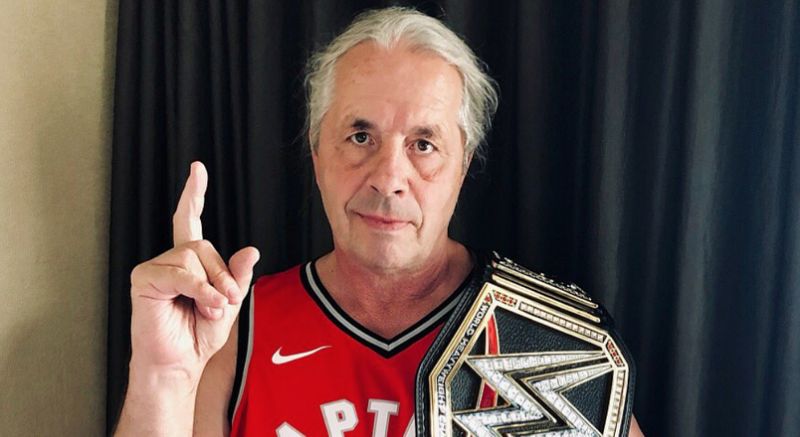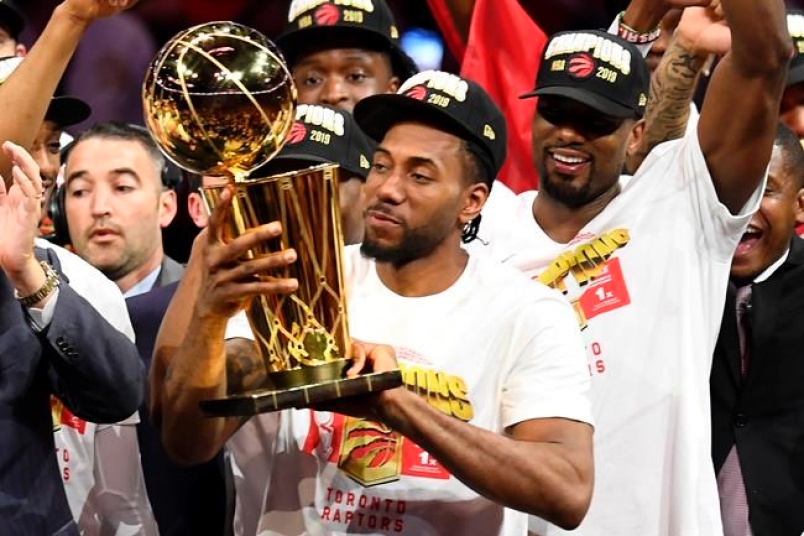There is, perhaps, nothing quite so devastating as a loss of identity.
In his world-famous text, 1984, English novelist and essayist George Orwell expounds upon that very sentiment, stating that there is nothing so harmful to a human being as denying them their own understanding of their history, therefore effectively removing any sense of identity. What remains is a bubbling mess, a lost soul, a husk of what could be.
Within the often fragile diegesis of sports, the same is true. Remove a team’s insight into their collective spirit (both past and present) and they will flounder and fail, no matter the talent of the individual pieces that make up the roster. For every particular group, there needs to be a cultural structure, a comprehension of what virtues make them what they are when at their best, and what flaws hinder them when at their worst.
For the 2019 Canadian senior men’s national basketball team, their potential identity—one fuelled by the greatest collection of overall talent the country has ever seen—was snuffed out before it ever had a true chance at manifesting itself.
To this point, 17 total players have withdrawn from consideration for the final roster that will travel to China for the FIBA World Cup later this month and compete for an opportunity to snag a berth to the 2020 Olympics in Japan. Out of the original 29 players invited to training camp, 17 of them were NBA talent, and now just three of those names (Cory Joseph, Kelly Olynyk, Khem Birch) remain.
While disappointment reigns for fans, the reasons for NBA players opting out of representing Canada are legitimate. Some are injured, some are key pieces on their teams (with sizeable contracts as reminders) in a league that promises to be wide-open next season, and the ramifications of playing an international schedule (one that ends only days prior to NBA training camp) are daunting.
With all of the dropouts, then, comes a coerced shift in identity for Canada, one more familiar and quantifiable than what could have been, though that doesn’t necessarily demand it be looked upon in a negative light. Players like Joseph, Olynyk, and Melvin Ejim have been mainstays of the program for most of their careers, and carry a valuable amount of experience in conjunction with their skill. With the unexpected core of the team a return to the known, forging an identity has at least become a swifter process.
“It definitely helps,” Joseph said when asked about team continuity. “We learn a lot quicker. Obviously, you know, we haven’t played together in some time, some of us. Guys like me, Kelly and Melvin, one day, like yesterday, that’s all we needed, now we’re back on track. But some of the other guys, young guys, we do our job in terms of being vocal and showing them by example out there. We’re coming along quick. Like I said, we’ve all either played with each other at one point in time or we’ve all watched each other’s games.”
Someone else who’s noticed the immediate connection between the pillar players is newly minted Canada head coach Nick Nurse, whose own addition to the team brings not only a fresh voice, but a championship-level gravitas. Even this early on, with only two pre-tournament games having been played, Nurse is already seeing the sparks of an on-court character.
“They do move the ball, they screen, they do re-space, they are really comfortable with trying to find the open man,” Nurse said. “I’ll be searching here in these games when we need a basket, who can do that. We know Cory can do it a little bit, obviously Kelly in the right matchup can do it a little bit, [Kevin] Pangos can do it, but we just have to figure it out. I think for the most part our theme will be hit the open man, play unselfish, and be a pass-the-ball type of team.”
In both contests against Nigeria, it swiftly became evident that despite Canada’s experienced foundation, finding ways to fully morph itself into the paragon of that unselfish type of play will prove difficult. It is not an issue with the personnel, however, as Canada’s roster is loaded with altruistic players, but rather one that stems from the group containing so few true creators, forcing non-creators to try and do more than perhaps they are capable, and ultimately generating turnovers that disrupt the offence.
Even still, the desire to strive for this specific style is clearly paramount within the team, and Canada has proven, albeit via a tiny sample size, that it can be dangerous when its shooters (of which there are several) are provided with even an ounce of space. If Nurse and company are able to find more sustainable methods of creation, then perhaps their yearning for such an identity will prove fruitful.
One avenue to possibly discovering alternative creation is to look down the bench towards the roster’s remaining younger pieces. Guys like Andrew Nembhard and Oshae Brissett could be given the chance to rise in team hierarchy and imprint themselves as key contributors to the final product.
Nurse has certainly been open to allowing such opportunities in exhibition, and Nembhard, in particular, has welcomed the moments he’s been gifted. In the initial game against Nigeria, he ran things down the stretch of a tight contest with poise, controlling pace and making heady plays that ultimately pushed Canada to victory.
“I think it’s going to be great,” Nembhard said when asked if getting such chances would benefit his development. “I think it’ll let me show other parts of my game that I don’t usually show at the college level. And it’ll just help me contribute to the team in many more ways and help us be more versatile.”
No, this is not what Canada Basketball expected. They didn’t expect their core to be a collection of faithful old heads, they didn’t expect to be looking at college kids for depth, and they certainly didn’t expect to make Nurse’s job significantly tougher.
Despite all that, this iteration of Canada will still have a chance to write its story—it’s just going to be done in a different style, with a different voice. This group discovering itself might not be the best version of what could’ve been, but it would be the best version of what is, and that’s really all anyone can ask for.
No matter which names fill the roster sheet, though, one constant remains: Every single person who dons a jersey is proud to wear the name of their country on their chest, and that pride is as foundational to team identity as anything else.
“Yeah, [playing for Canada] doesn’t get old,” Joseph said with a smile. “It’s an honour. I’ve been doing it for a long time to have a chance to make it to the Olympics and we have another chance this summer, so we’ve gotta go out there and get it.”



